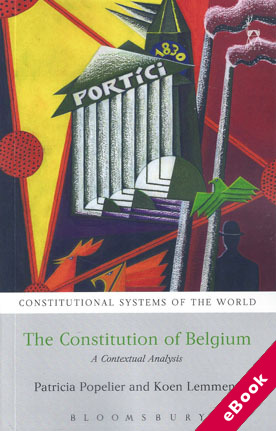
The device(s) you use to access the eBook content must be authorized with an Adobe ID before you download the product otherwise it will fail to register correctly.
For further information see https://www.wildy.com/ebook-formats
Once the order is confirmed an automated e-mail will be sent to you to allow you to download the eBook.
All eBooks are supplied firm sale and cannot be returned. If you believe there is a fault with your eBook then contact us on ebooks@wildy.com and we will help in resolving the issue. This does not affect your statutory rights.
The Belgian constitution, once described as a model of consensus democracy, has now become an enigma in comparative federalism. On the one hand, it demonstrates features which suggest institutional instability as well as elements that enhance the probability of secession.
On the other hand, Belgium continues to exist as a federal system, based upon linguistic bipolarity. This linguistic bipolarity dominates Belgian politics and has shaped the design of Belgium's institutions as well as the constitution's fundamental organizing principles: concepts of federalism, democracy, separation of powers, constitutionalism and the rule of law.
In this book, the institutional structure and the principles governing the Belgian constitutional system are explained in the light of its historical, demographic and political context. Linguistic bipolarity and its historical evolution explain the establishment of the Belgian state structure as a dual federalism, with exclusive powers, instruments for consensus making and obstruction, and elements of con-federal decision-making.
It also explains the evolution in the concept of principles of democracy and the rule of law. Besides describing the devolutionary process, the book also incorporates two other elements that have shaped the Belgian constitutional landscape: fundamental rights and Europeanisation, both of which have been influenced by and impacted on Belgium's bipolar constitutional structure.